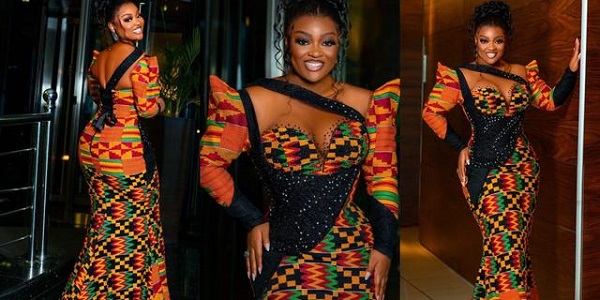
Time to focus on sustainable fashion designs
The fashion industry has a crucial role to play in achieving various Sustainable Development Goals, yet only a handful of clothing brands and businesses are presently investing in sustainable practices.
Given the alarming negative impact of the fashion industry on the environment, there has been a growing global concern about the need for sustainable fashion. To address this demand, the Ghanaian fashion industry needs to embrace environmentally conscious practices and integrate sustainability into fashion design.
One initiative that Ghanaian fashion designers can adopt is the circular fashion approach of upcycling and recycling clothing.
By reusing and repurposing fabrics and materials, designers can create sustainable fashion items that are not only eco-friendly but also fashionable.
Designers can use their creativity to transform old fabrics, garments and accessories into new, fashionable pieces. For instance, high-fashion white wedding gowns can be modified and repurposed as normal occasion wear, while the popular traditional kente gowns can be converted into simple casual wear to sustain fashion.
To promote sustainable consumption, fashion designers should focus on creating durable and long-lasting products with high-quality materials that are repairable and avoid fast fashion trends.
They should create pieces that are classic and timeless, that will never go out of style, and that can be worn for several years. Additionally, designers should use the correct tools and materials to create high-quality, long-lasting designs, which will save customers money and help designers build a strong brand image and increase their customer base.
Furthermore, the popular traditional kente gowns can be converted into simple casual wear to sustain fashion. Hand-weaving, dyeing, and printing are techniques that have been passed down from generation to generation and are an important part of Ghana's cultural heritage.
In addition, Ghanaian fashion designers need to take a critical look at advancing through research and development, workshops, seminars and trade shows. There is a need for a national fashion designers' union to collaborate with designers and fashion experts, share ideas and knowledge, and create networks to promote fashion sustainability. By working together, stakeholders can develop new systems and practices that support sustainable fashion and reduce the environmental impact of the fashion industry.
Using natural fabrics with a blend or content of organic cotton, bamboo and hemp fibres is another way Ghanaian fashion designers can achieve sustainable fashion. These eco-friendly materials are recyclable, biodegradable, and made from sustainable sources, reducing the negative environmental impact of the fashion industry.
Finally, fashion designers can educate consumers about the importance of fashion sustainability. By promoting sustainable fashion practices and explaining the environmental impact of the fashion industry, designers can encourage consumers to make more conscious choices when it comes to fashion.
Key takeaway points
- Circular fashion, in the form of upcycling and recycling, is an initiative that Ghanaian fashion designers can embrace to create sustainable fashion.
- By using fabrics and materials that can be reused and repurposed, fashion designers can produce fashion items that are not only sustainable but also fashionable.
- Fashion designers should focus on creating durable and long-lasting products with high-quality materials that are repairable and avoid fast fashion trends to reduce the need for new purchases and promote sustainable consumption.
- Additionally, the correct tools and materials must be purchased to create high-quality, long-lasting designs.
- Moreover, designs can be sustained by using traditional techniques and materials that are indigenous to Ghana.
- There is a need for a national fashion designers' union to collaborate with designers and fashion experts, share ideas and knowledge, and create networks to promote fashion sustainability.
The Writer is a Fashion & Textiles Lecturer, Bluecrest School of Fashion and Design/ Fashion Sustainability Advocate
